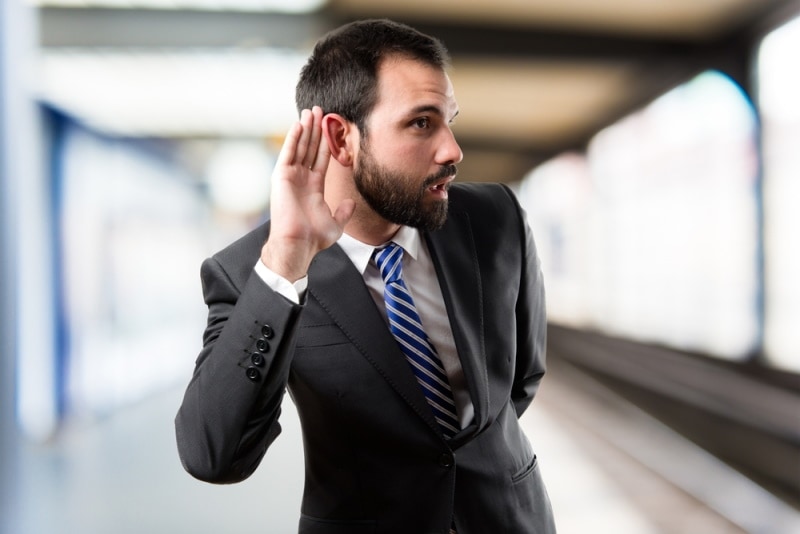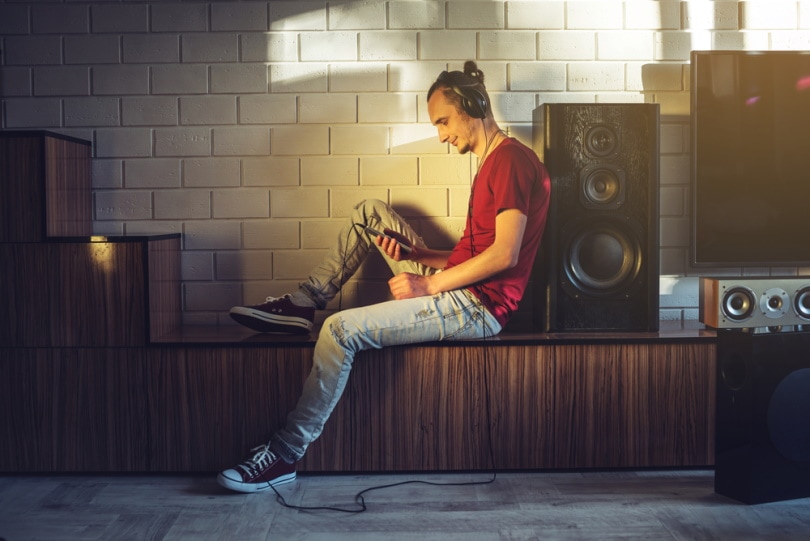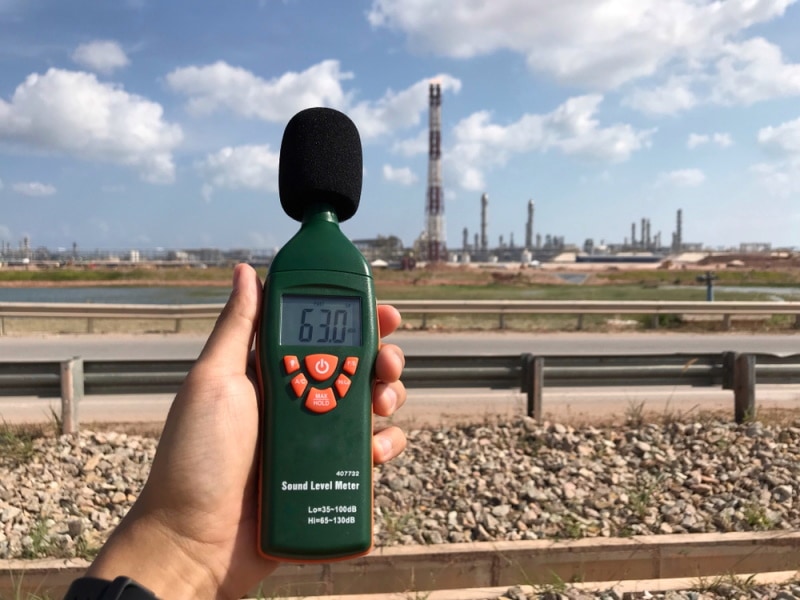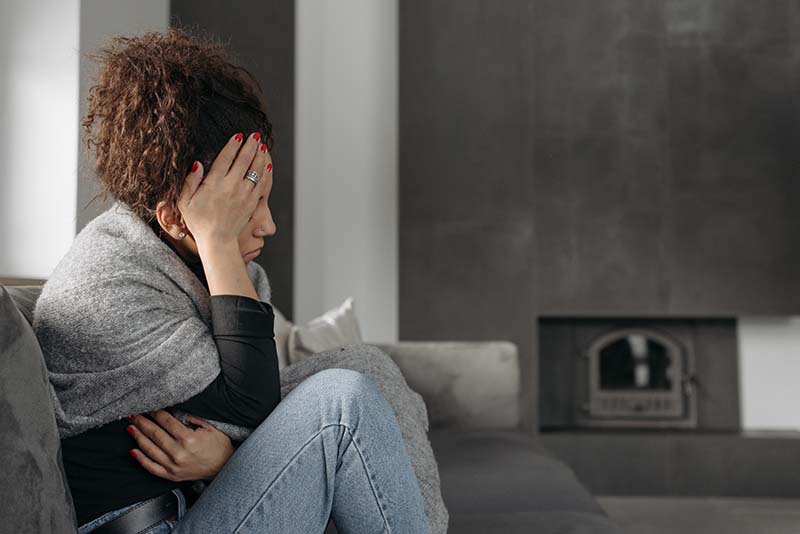How Loud Is 50 Decibels (dB)? Is It Harmful?
-
Greg Iacono
- Last updated:

The best way to determine what constitutes a “loud” sound and a “quiet” sound is to start with a reference point. We’re going to begin at 50 decibels (dB) and answer the question, “How loud is 50 decibels (dB)?”
The answer is that 50 dB is a moderate to low sound. For example, a new refrigerator running smoothly makes about 50 dB of sound, as does a calm conversation between two or three people. A typical street would produce about 50 Db of sound on a quiet suburban night. There are softer sounds, of course, but the takeaway is that 50 dB of sound isn’t damaging to your ears. It’s not whisper-quiet, but it’s a level of sound even a baby could manage safely.
Below we have information about sound, decibel levels, and how to make sure noise isn’t causing harm to your hearing. Read on to discover it all and keep your ears healthy and hearing sharp.
What Is the Hearing Range of Humans?
Human hearing might be one of our most powerful senses. That’s not to say humans are the best at hearing sounds because we’re not. Dogs, cats, bats, and dolphins hear much better than people. Still, our hearing ranges from the threshold of 0 dB (silence) to about 130 dB (a large airplane taking off).

Where Does Noise Become Harmful to Human Ears?
Even though you can hear up to 130 dB, that’s not to say you should. Indeed, the highest level we can listen to safely is about 80 dB, equal to the amount of noise made on a busy school playground. At 90 dB, you hit a dangerous threshold. That means a sustained volume of 90 dB might damage your inner ear and hearing.
Further up, at 110 dB, the level of a jackhammer working, you reach the danger zone where the risk of permanent hearing damage is imminent. Lastly, there’s 130 dB, which is the amount of noise emitted by an airplane taking off; permanent hearing loss can occur if you’re forced to listen for even a short amount of time.
The Decibel Scale Is Logarithmic
Noise is measured on a logarithmic scale, not a linear one. For example, when you increase from 10 apples to 20 apples, you double the number. That’s linear. However, when you rise from 10 dB to 20 dB, the resulting increase in sound intensity isn’t doubled; it’s increased 10-fold! Looking at it another way, the sound intensity is doubled every time there’s an increase of 3 dB.
A simple example of a logarithmic increase would be to compare the noise from the refrigerator we used earlier, 50 dB, to the noise emitted from a dishwasher, about 62 dB. While there’s only a 12 dB increase, the actual noise increase is almost 16 times as intense, at least for our ears. Once you hit 70 dB, the sound intensity is over 100 times more intense than 50 dB. At 80 dB, you’re listening to noise that’s nearly 1000 times more intense than 50 dB.

Is 50 dB Too Loud to Sleep?
As we’ve seen, 50 dB is the amount of noise made by a new fridge or a normal conversation. The Environment Protection Agency (EPA) recommends keeping noise levels below 70 dB to prevent damage to your ears and hearing loss. However, is 50 dB too loud to sleep? Experts say that it is and that, to protect your hearing, you should sleep with noise levels that are under 40 dB.
That’s about the level of a box fan on the 1st or 2nd setting, which is good because many people use box fans to make “white noise” at night. However, hearing loss or ear damage won’t occur if you sleep with 50 dB of noise, although it might make it more difficult to fall asleep for some.
What Are the Long-Term Effects of Exposure to High Sound Levels?
You might think listening to noise all day isn’t a problem. After all, many of us deal with traffic, car alarms, music, TVs, loudspeakers, and more every day and seem fine. That’s the problem with noise, however, because you don’t realize it’s harming you until it’s too late. Below are some health problems that high noise levels can cause, especially when you’re exposed to it every day for several hours.

- Higher levels of stress and anxiety
- Depression
- Heart disease
- High blood pressure
- Delayed cognitive development in children
- Tinnitus (ringing in the ears)
- Reduced productivity
- Hypertension
- PTSD trigger
- Impaired concentration
- Increased accidents in the workplace
- Impaired sleep
- Possible brain damage
- Impacted immunity
How to Protect Your Ears, Hearing, and Sanity From Noise
The thing about loud noise levels is that, in some cases, protecting yourself from them is easy and barely inconvenient. In other cases, it can be difficult or next to impossible without the proper protective equipment. For example, if an ambulance passes you with its sirens blaring while you’re walking down the street, there’s not much you can do but wait for it to pass.
However, wearing noise-reducing headphones might be warranted if you work near a hospital and ambulances constantly come and go all day long with their sirens blaring. The same can be said if you work with loud machinery or at a gun range. Below are a few other methods to protect your ears from loud noises.
- Limit the time you listen to loud music and other high noise levels.
- Use noise-canceling headphones if you work around loud noises.
- Stay away from places where noise levels are high, like bars, clubs, and concerts.
- Use headphones at 60 dB or less for no longer than 60 minutes.
- Have your hearing tested every 2 or 3 years.
- Download an app that measures decibel levels on your smartphone.

Sound Level Comparison Chart
Below is a convenient chart that will tell you the decibel levels of many everyday noise-making items and situations in and around your home.
| Sound | Decibel Level |
| Breathing | 10 dB |
| Whispering | 20 dB |
| Leaves Rustling | 30 dB |
| Rain falling | 40 dB |
| Refrigerator | 50 dB |
| Conversation | 60 dB |
| Automobile traffic | 70 dB |
| Large truck passing | 80 dB |
| Hairdryer | 90 dB |
| Helicopter | 100 dB |
| Trombone | 110 dB |
| Ambulance siren | 120 dB |
| Jet engine | 130 dB |
| Fireworks | 140 dB |
What Was the Loudest Sound Ever Recorded?
Sound, as we’ve seen, can be incredibly damaging to your ears and your health. Indeed, sound can be so loud and violent that it can burst your ear drums, which happens at about 150 to 160 dB.
In 1883, however, the loudest sound ever made on the planet, at least in recorded times, was caused by the Krakatoa volcano erupting. That eruption was recorded as 310 dB and was so violent that ⅔ of the island of Krakatoa was destroyed. It was so loud that the sound was heard over 3,000 miles away!
Conclusion
How loud is 50 decibels (dB)? 50 dB is rather quiet, like a normal conversation or the sound of a quiet suburban street. Scientists say that 50 dB is a little too loud for sleeping but that it won’t cause any damage to your ears. Once the noise level reaches about 80 dB, however, the risk to your ears and your hearing becomes far greater, especially when you consider that decibel levels are logarithmic and not linear. An increase of only 3 dB increases the sound level 10 times, which is why keeping sound levels under 50 to 60 dB is vital to your health and well-being.
Related Read:
Featured Image Credit: Luis Molinero, Shutterstock
Contents
